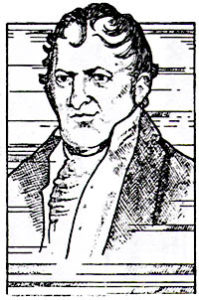Eli Whitney (1765-1825)
A poor boy, Whitney made nails as a child and saved the money to pay his way to Yale. A prospective job in Georgia was filled before he arrived, and he found work assisting the manager of a plantation. Here he learned of the problem with cotton as a crop, because its short staples could not be separated from the seeds. He soon devised a machine to do the job, but set ‘the royalty so high that planters refused to pay and the machine was pirated. Famous but still poor, Whitney got backing for an arms works and in 1798 obtained a government contract for 12,000 muskets, on the promise to complete the contract in two years, using improved machinery. It took him eight years and, contrary to legend, the guns did not have interchangeable parts. Small groups of parts were filed to be interchangeable, then marked and hardened. Nevertheless, Whitney was successful enough to obtain a second contract for 15,000 muskets, followed by other contracts. The ‘Whitney milling machine,” wrongfully identified as the first milling machine, has since been determined by Woodbury and Battison to date from much later, probably about 1827. Whitney, however, captured the popular imagination more than any other person in the history of metalworking. Even when the legends that have grown up around him are stripped away, he remains a major figure.
Elected 1998


 Machine Tool Builder
Machine Tool Builder
 Inventor
Inventor